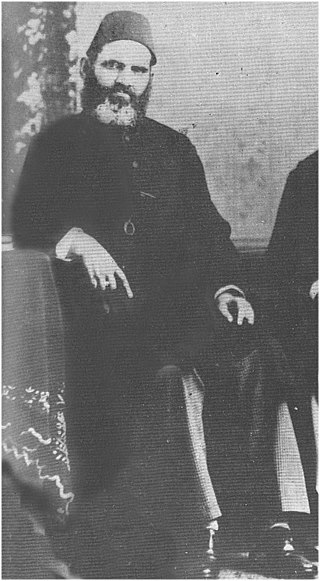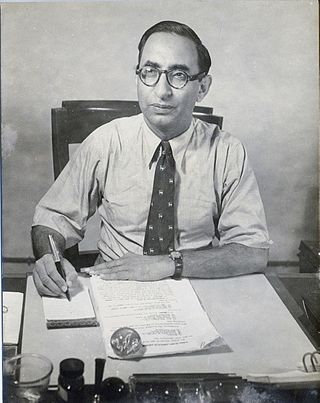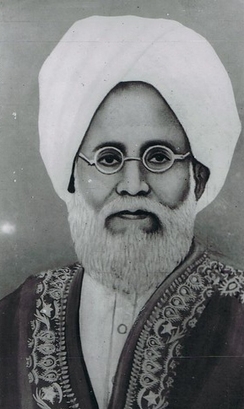
Shibli Nomani was an Islamic scholar, poet, philosopher, historian, educational thinker, author, orator, reformer and critic of orientalists from Indian subcontinent during the British Raj. He is regarded as the father of Urdu historiography. He was also proficient in Arabic and Persian languages. Shibli was associated with two influential movements in the region, the Aligarh and the Nadwa movements. As a supporter of the Deobandi school, he believed that English language and European sciences should be incorporated into the education system. Shibli wrote several biographies of Muslim heroes, convinced that Muslims of his time could learn valuable lessons from the past. His synthesis of past and modern ideas contributed significantly to Islamic literature produced in Urdu between 1910 and 1935. Shibli established the Darul Musannefin Shibli Academy in 1914 to promote Islamic scholarship and also founded the Shibli National College in 1883. Although he collected much material on the life of Prophet Muhammad, he could only complete the first two volumes of the planned work, Sirat al-Nabi. His disciple, Sulaiman Nadvi, added to this material and wrote the remaining five volumes after Shibli's death.

Azamgarh is a city in the Indian state of Uttar Pradesh. It is the headquarters of Azamgarh division, which consists of Ballia, Mau and Azamgarh districts. Azamgarh is situated on the bank of Tamsa River (Tons). It is located 268 km (167 mi) east of the state capital Lucknow and 809 km from national capital, Delhi.

Azamgarh district is one of the three districts of Azamgarh division in the Indian state of Uttar Pradesh.

Darul Uloom Nadwatul Ulama is an Islamic seminary in Lucknow, India. It was established by the Nadwatul Ulama, a council of Muslim scholars, on 26 September 1898.

Nawab Mohsin-ul-Mulk, Munir Nawaz Jang, also known as Syed Mehdi Ali, was an Indian Muslim politician. He was a close friend of Syed Ahmed Khan, was involved in the Aligarh Movement and was one of the founders of the All India Muslim League in 1906.
Hamiduddin Farahi was an Indian Islamic scholar known for his work on the concept of nazm, or coherence, in the Quran.
Syed Jalaluddin Umri was an Islamic scholar and writer. He was the Amir of Jamaat-e-Islami Hind from 2007 to 2019.
Muhammad Abdul Haq Ansari was an Islamic scholar from India. He was the Amir (president) of Jamaat-e-Islami Hind (JIH) from 2003 to 2007. He was the member of Central Advisory Council of Jamaat-e-Islami Hind. He was also the Chancellor of Al Jamia Al Islamia, Shantapuram, Kerala. His book Sufism and Shariah is a synthesis of Sufi and Shariah thought, especially a Tatbiq of Shaikh Ahmed Sir Hindi and Shah Waliullah's thought. It grew out of his in-depth engagement with kalam, tasawwuf and fiqh in Islamic history. His other major contributions are a book on Mishkawah's philosophy and an English translation of Ibn Taymiyyah's fatwas with an introduction. He also wrote 'Learning the Language of Quran' it is one of the best English guides for the beginners learning to read the Qur'an. In New Delhi he established the Islami Academy, aimed at training graduates from secular educational background in Islamic Sciences based on the madrasa curriculum.

Muḥammad Manz̤oor Nomānī was an Indian Islamic scholar. Prominent among his written works are Maariful Hadith, Islam Kya Hai?, and Khomeini and the Iranian Revolution.
Fazlur Rahman Faridi was an Islamic studies scholar, economist and a writer on Islam and contemporary Issues. He was the director of research and studies of Jamaat-e-Islami Hind.
Mohammad Rabey Hasani Nadwi was an Indian Sunni Islamic scholar, who served as the president of All India Muslim Personal Law Board and as the chancellor of Darul Uloom Nadwatul Ulama, an Islamic seminary in Lucknow, India. He was the patron of Islamic Fiqh Academy, the vice president of the Aalami Rabita Adab-e-Islami in Riyadh, and a founding member of the Muslim World League. He was regularly listed in the publication The 500 Most Influential Muslims. His disciples included Ijteba Nadwi.
Salman Husaini Nadwi, is an Indian scholar and professor in the Islamic sciences. He is an author of numerous scholarly works in Arabic and Urdu. Salman Nadwi served as the Dean of the Faculty of Dawah at the Darul-uloom Nadwatul Ulama madrasa in Lucknow.
Iqbal Ahmed Khan was born in 1884 in village Badhariya, Azamgarh, and died on 7 November 1955. He was a famous Urdu poet, writing under the takhallus, or pen name "Suhail", Islamic scholar, lawyer, educationist and a politician. He was a member of the executive committee of the Azamgarh Muslim Education Society, which manages Shibli National Post Graduate College and other institutions in Azamgarh, Uttar Pradesh. His poetry has been mentioned in many articles about Azamgarh. His work has been featured in the Encyclopedic Dictionary of Urdu Literature. edited by
Saiyid Hamid was a prominent Indian educationist and diplomat. He was a member of Indian Administrative Service and also served as the Vice Chancellor of Aligarh Muslim University. He had also served in several important committees, including the Sachar Committee set up by the UPA government to probe the social and economic conditions of the Indian Muslim community.

Sheikh Muhammad Ikram better known as S. M. Ikram, was a Pakistani historian, biographer, and littérateur. He was member of the Indian Civil Service. In 1947, when Pakistan emerged from British India, Ikram opted for Pakistan and served in the Civil Service of Pakistan. On July 1, 1966, he was appointed as director, Institute of Islamic Culture, Lahore, a position he occupied until his death in 1973, at the age of sixty-four.
Noor Alam Khalil Amini was an Indian Sunni Muslim scholar, academic and a litterateur of Arabic and Urdu. He was a senior professor of Arabic language and literature at the Darul Uloom Deoband. His book Falastin Fi Intezari Salahidin was subject of a doctoral study at Assam University and his book Miftahul Arabia is part of dars-e-nizami curricula in various madrasas.
Sadruddin Islahi was an Indian Islamic Urdu writer and a close companion of Abul A'la Maududi. He was one of the early members of Jamat e Islami.

Muhammad Wazeh Rashid Al-Hasani Al-Nadwi was an Indian Islamic scholar, Arabic writer, researcher and journalist. He was the nephew of Islamic scholar and reformer Abul Hasan Ali Hasani Nadwi and brother of Rabey Hasani Nadwi.

This bibliography of Shibli Nomani is a selected list of generally available scholarly resources related to Shibli Nomani, a poet, philosopher, historian, educational thinker, author, orator, reformer, critic of orientalists and Islamic scholar from Indian subcontinent during the British Raj, regarded as the father of Urdu historiography. He didn't write an autobiography during his lifetime. However, he bequeathed it to his disciple Sulaiman Nadvi. Accordingly Sulaiman Nadvi composed Hayat-e-Shibli in 1943. This list will include his biographies, theses written on him and articles published about him in various journals, newspapers, encyclopedias, seminars, websites etc. in APA style.








